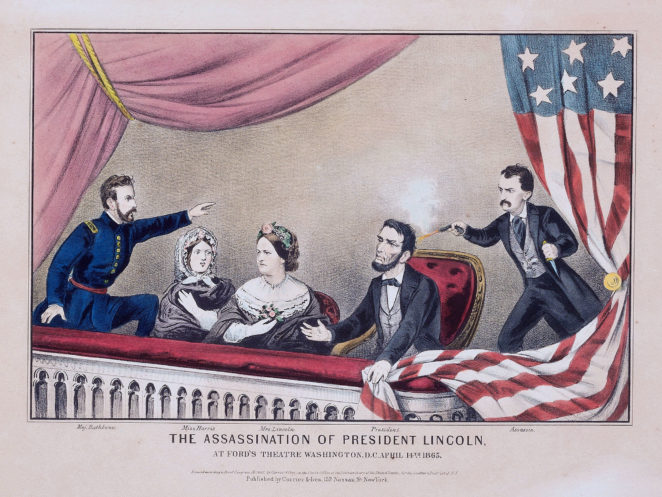
When we say that somebody’s name is “mud” we mean that he or
she is completely out of favour for one reason or another. On the face of it,
that sounds like a perfectly reasonable word to use, given that mud is that
nasty, sticky or slippery stuff that we don’t like treading in if we can avoid
it.
However, the term has a much more interesting derivation,
concerning a tale of a miscarriage of justice and a name that just happened to
fit the use to which it was put.
The story begins with the assassination of President Abraham
Lincoln in a box at Ford’s Theatre in Washington DC on 14th April
1865. His assassin, John Wilkes Booth, fired the fatal shot then jumped down on
to the stage of the theatre. This proved to be too great a height for safety,
because Booth broke his leg when he landed and it was only with some difficulty
that he was able to leave the theatre, mount his horse and escape.
Once safely outside Washington, Booth found a doctor to
treat his injury. This was Dr Samuel Mudd, who did what he was asked, after
which Booth rode away.
Dr Mudd only realized who his patient had been when news of
the assassination reached everyone the following day. He promptly informed the authorities
that he had seen and treated the assassin, but the response he got was far from
what he expected. Instead of being thanked for providing valuable information,
he was arrested and charged for apparently being a friend of Booth and part of
a conspiracy to kill the President.
Giving aid to the man who killed Abraham Lincoln was reckoned
by the general public, and the court that tried Dr Mudd, as being a heinous
crime that deserved a heavy punishment, and a sentence of life imprisonment was
what he got, despite his claim that he had no idea who Booth was at the time he
had treated his injury.
It was not until 1869 that Dr Mudd was pardoned and released
from jail, but there were still plenty of people who did not believe his
protestations of innocence. His name therefore continued to be “mud” for the
rest of his life, and “mud” has stuck to many other people in later years whose
reputation has been seriously tarnished.
© John Welford
